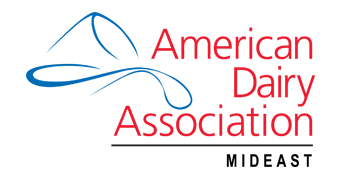
(COLUMBUS, Ohio) – Many people would agree that breakfast is the most important meal of the day, yet each day millions of children go to school without it. For most people, like Stefanie Goldberg and her daughter Olivia, it’s not always a conscious decision to skip breakfast, as much as it is simply a matter of time.
“Mornings are very hectic at our house” said Goldberg. “They usually start about 6:30 and we’re up and about trying to get everybody ready and out the door. We don’t usually make good choices for breakfast because time is short, and it can be very stressful.”
But experts say walking out the door with no breakfast, or one with poor nutritional value, can lead to a myriad of problems. Studies show that kids who habitually skip breakfast tend to be heavier**, and often do worse in school.*
“Kids who are hungry don’t do as well, they don’t pay attention” said Robert Murray, MD a pediatrician and professor in the Department of Human Nutrition at Ohio State University.
“When you’re hungry, you’re thinking about other things and it’s very difficult to lock in and be good in academics.” Murray added: “Your blood sugar is mainly used to fire the brain, so if you’re trying to get the brain to work full tilt, you really want to be sure that the kid’s well nourished.”
So, how do you provide a good, balanced breakfast, if you’re trying to get ready and rush out the door every morning?
“I think you need to think outside of the box” says Karen Bakies, a dietician with the American Dairy Association. “Breakfast can be fast, if you work ahead of time and you plan ahead.”
Bakies says taking time to plan breakfast is important, but serving the right kinds of foods is essential. She offers these tips to keep your kids “F.I.T.” during the school year.
Fill them up with complex carbs,
like fruit and whole grains, and good proteins –
“Such as peanut butter, eggs, cheese, yogurt, a glass of milk – all get you a great protein source that will help you feel fuller longer and stick with you until lunch time” Bakies says.
Invent ways to make breakfast fun.
Challenge your kids to come up with things like the “banana dog”. “Take a whole wheat bun, like a hot dog bun, put some peanut butter on it, put a banana down the middle” suggests Bakies. “Simply pair the banana dog with a glass of chocolate milk or white milk and you have 4 out of the 5 food groups.” And, finally,
Take time to eat breakfast – together, or at school.
“When parents tell me ‘I can’t get my kids to eat breakfast’, the first thing I ask them is ‘Do you eat breakfast?’ Chances are you’ll have breakfast eating kids if you’re a breakfast eater as well” Bakies says.
If breakfast at home is simply not possible, look into breakfast programs at your child’s school. Many schools have found that offering breakfast not only ensures more kids will attend, but will be more attentive.
If your school doesn’t yet have a breakfast program, Bakies suggests looking into sponsored programs, like the Fuel Up to Play 60 Program. “It’s a partnership between the National Dairy Council and the National Football League” says Bakies. “It’s intended to increase not only the number of kids that are eating breakfast, but also how those breakfasts are structured.” As for the NFL’s role, Bakies says “we bring the nutrition aspect, the National Football League brings the exercise or at least 60 minutes a day of physical activity.”
For more breakfast tips and nutritious recipes, check out the American Dairy Association’s website at drink-milk.com.
*Nutrition and the Health of Young People, Centers for Disease Control and Prevention. Retrieved August 2011 from: www.cdc.gov/healthyyouth/nutrition/facts.htm
**Skipping breakfast: longitudinal associations with cardiometabolic risk factors in the Childhood Determinants of Adult Health Study, The American Journal of Clinical Nutrition, Volume 92, Number 6, October 2010. Online: http://www.ajcn.org/content/92/6/1316.abstract





